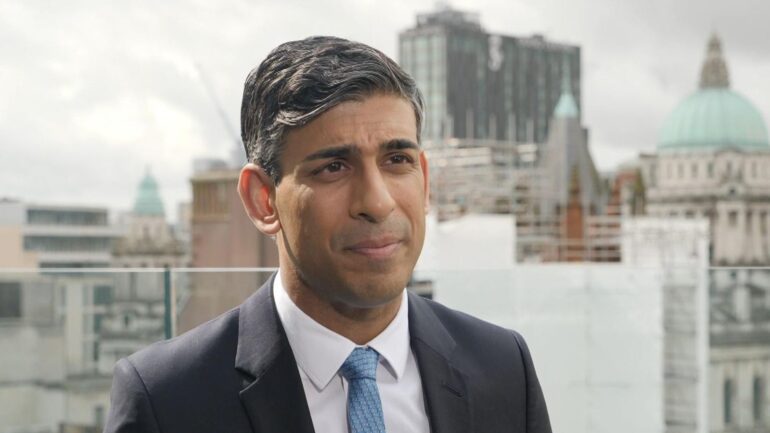TL;DR:
- Rishi Sunak, Chancellor of the Exchequer, declares UK’s leadership in addressing AI risks.
- Calls for a moratorium on AI development have prompted Sunak to emphasize the need for safe and secure implementation with proper safeguards.
- Influential figures like Elon Musk and Steve Wozniak have supported a pause in significant AI projects due to concerns about digital minds, fraud, disinformation, and job displacement.
- The UK government has previously focused on highlighting the benefits of AI rather than its risks.
- Sunak launched a £100 million taskforce to develop “safe and reliable” AI applications, aiming to position the UK as a science and technology superpower by 2030.
- Sunak advocates for a global approach to AI regulation and acknowledges the UK’s leadership in technological regulation, such as the online safety bill.
- The US also supports discussions on AI threats, including disinformation and infrastructure risks.
- The UK Competition and Markets Authority (CMA) will examine foundational AI models, and their findings will be published in September.
- Geoffrey Hinton’s resignation from Google allows him to speak freely about AI dangers, while Sir Patrick Vallance urges proactive measures to address the social and economic impact of AI.
Main AI News:
The United Kingdom has positioned itself at the forefront of addressing the potential hazards of artificial intelligence (AI), according to Rishi Sunak, Chancellor of the Exchequer. Responding to calls from tech experts and business leaders for a moratorium on AI development, Sunak emphasized the need for a cautious and responsible approach, ensuring that AI is introduced “safely and securely with guard rails in place.”
Sunak acknowledged the immense benefits and transformative potential of AI for society. However, he stressed the importance of implementing comprehensive measures to mitigate its risks. This stance represents a notable shift, as influential figures in the tech industry, including Elon Musk, the owner of Twitter, and Steve Wozniak, co-founder of Apple, have recently joined forces with over 30,000 signatories in advocating for a pause in significant AI projects. Their concerns revolve around a range of issues, such as the development of digital minds, fraud, disinformation, and the impact on jobs.
While Sunak has been an ardent supporter of AI, focusing on its advantages rather than its risks, his recent statements demonstrate a more measured approach. In March, the UK government unveiled a regulatory program characterized by a light-touch approach, seemingly devoid of any proposals for new legislation or enforcement bodies. Additionally, last month, Sunak launched a £100 million UK taskforce dedicated to developing “safe and reliable” AI applications, with the ultimate goal of positioning the country as a science and technology superpower by 2030.
Speaking during his journey to the G7 summit in Japan, where AI will be a key topic of discussion, Sunak emphasized the necessity for a global regulatory approach. He stated, “We have taken a deliberately iterative approach because the technology is evolving quickly, and we want to make sure that our regulation can evolve as well. This will require coordination with our allies, and it will undoubtedly be a prominent topic at the G7.”
Highlighting the UK’s track record of leadership and collaborative initiatives in technological regulation, Sunak referenced the forthcoming online safety bill. He also emphasized the cooperation of companies in establishing guidelines, exemplifying their willingness to work alongside the government to define the guardrails necessary for AI.
The United States has also advocated for AI discussions at the Hiroshima summit, with a particular focus on the threats posed by disinformation and the potential impact on critical infrastructure. The ChatGPT system serves as a prime example of AI’s rapid advancement. While 10 Downing Street does not view a moratorium as the solution, it is actively considering the development of a global framework.
The UK Competition and Markets Authority (CMA) recently announced its intention to examine the foundational models underpinning AI tools, which legal experts describe as a preliminary warning to the industry. The findings of this initial review are scheduled for publication in September.
Geoffrey Hinton, widely regarded as the “godfather of AI,” made headlines earlier this month by resigning from Google to freely voice his concerns about the dangers associated with the technology. Sir Patrick Vallance, the UK government’s outgoing chief scientific adviser, has urged ministers to proactively anticipate the profound social and economic changes AI could bring, drawing parallels to the transformative impact of the Industrial Revolution on employment.
Conlcusion:
The UK’s commitment to leading in the mitigation of AI risks signifies a significant development for the market. By emphasizing the importance of safe and secure implementation with proper safeguards, the UK government acknowledges the need to address concerns surrounding AI’s potential dangers. This approach demonstrates a measured response to calls for a moratorium and highlights the government’s willingness to strike a balance between harnessing the benefits of AI and mitigating its risks.
As the UK positions itself as a science and technology superpower, businesses operating in the market can expect a greater emphasis on responsible AI development and regulation. This commitment to safeguarding the future of AI will likely drive the adoption of comprehensive measures across industries, promoting trust, accountability, and long-term sustainability in the market.

